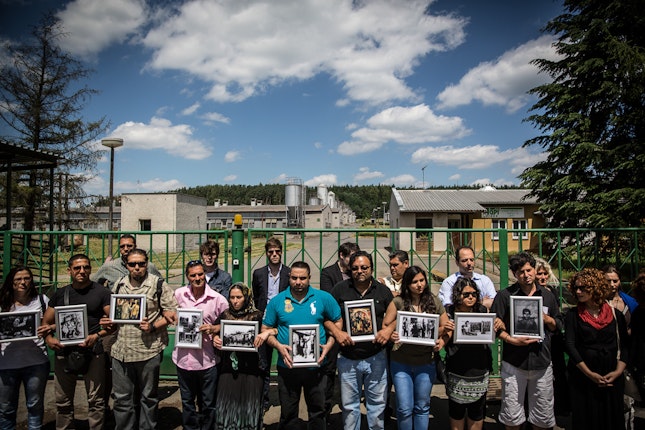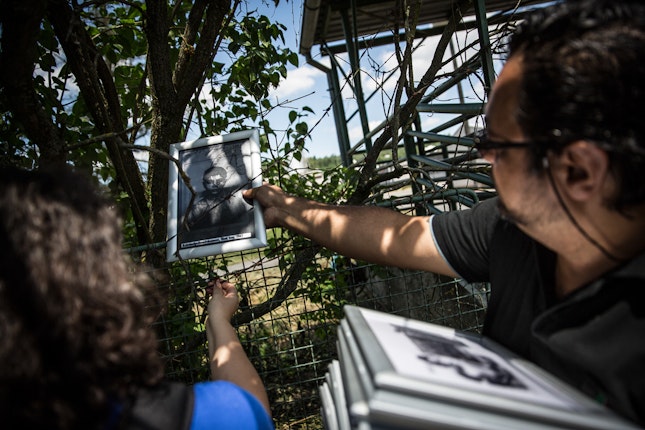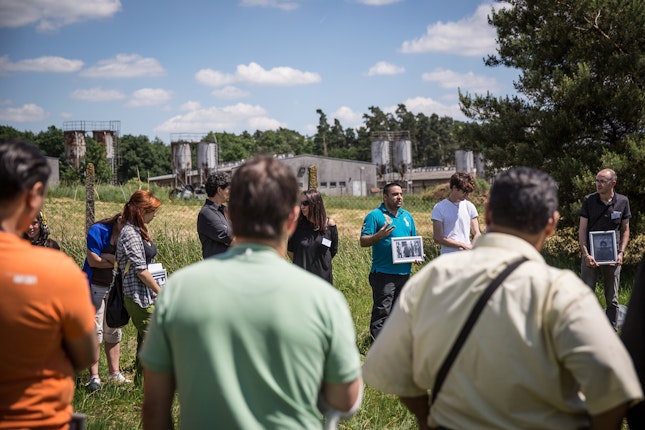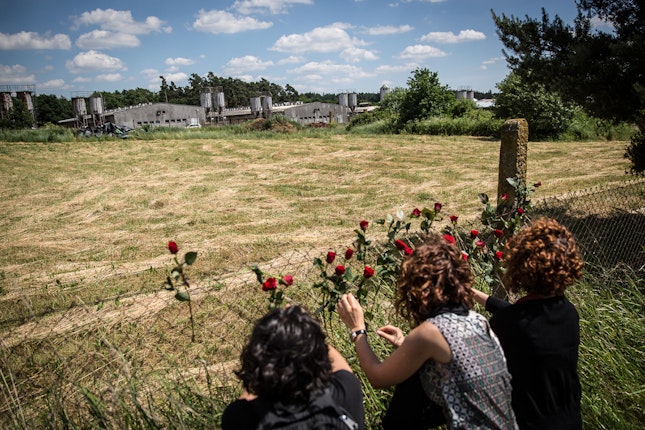A Battle for Roma History in the Czech Republic
By Miroslav Broz
There can be no more appropriate metaphor for Europe’s collective amnesia about the plight of Roma during the Holocaust than the Czech government’s inability to remove a pig farm situated on the site of a former concentration camp for Roma.
Visitors to the sleepy village of Lety in Southern Bohemia, upon seeing the industrial farm behind rusty barbed wire, often remark how sinister it looks. Between 1942–43, around 1,500 Roma were taken to Lety and, of those not deported, at least 300 were murdered, most of them children.
The total number of victims is disputed, but we would have a much clearer picture if historians and archeologists were allowed access to this private land to investigate and preserve the honor of the fallen. On the ground of such a historically and emotionally significant site, we would expect nothing less elsewhere in Europe. Instead, at Lety, the foul-smelling pig farm continues its business, unperturbed by the ghosts that haunt it.
It would be slightly more understandable if the authorities had only been made aware of this uncomfortable truth recently, but whispers have circulated around the village for decades. In fact this is how, 20 years ago, Roma historian and activist Paul Polansky began his work there. Polansky discovered documents revealing that there was indeed a “Gypsy” concentration camp at the Lety site—established and run not by the Nazis but by the Czech Criminal Police.
Polansky spent years documenting the stories of Czech Roma survivors of Lety. This research forced the Czech government to recognize Lety as a Holocaust site, albeit without removing the pig farm.
Not only does the country need to reexamine its treatment of Roma people, both then and now, but also its role in WWII, which was a more active role than some narratives suggest. Most Roma in the Czech Republic were killed or deported.
Many international and human rights institutions have pressured the Czech government to buy the pig farm, clean up the site, and convert it to a dignified memorial. The government claims that the owners are charging too much money to sell the site. Pleading poverty after pleading ignorance for so long is still unacceptable.
Many people ask, “Why do you dredge up history?” and “What does it change?” But I am certain that anyone with ancestors who perished in one of the many concentration camps around Europe would understand the need for justice and closure. Recently, a group of activists blockaded the road outside the farm and prevented vehicles from entering. A senior police officer from the village told me that his grandmother was a Holocaust survivor, and that he sympathized with our cause.
It remains a huge undertaking to campaign for heightened awareness of the Roma Holocaust and for giving it equal weight in the history books. Czech schoolbooks dedicate no more than one sentence to the Roma Genocide. There is already such a scarcity of national monuments that speak of the horrors of the Porajmos, and this attempt to close the book on a part of history that has not even been closely studied is worrying.
At the same time, the far right is exploiting a depressed economy and deep-seated tensions between communities as an opportunity to reassert themselves and create fear and division. Far-right demonstrations have been occurring across the Czech Republic for a number of years but there are two particularly concerning factors.
Some of the demonstrators come from German neo-fascist groups who are unable to assemble over the border in Dresden and Saxony due to a much more emboldened civil society. Yet only a small minority of neo-Nazi sympathizers attend or organize these events. The majority of participants are simply bored, restless young men and women with few opportunities and lack of anything else to do other than brawl with the riot police and join in the witch hunt of Roma.
Concerned citizens, along with members of my organization Konnexe, have set up a warning system to inform Roma communities whenever a far-right march is planned. We visit the affected communities ahead of the march and work with them, through psychosocial and other means, to prepare for the protest. These marches near socially excluded Roma communities—more than 50 took place in 2013—serve little purpose other than to intimidate and harass the inhabitants.
In 2005, then-president Vaclav Klaus remarked that Lety in fact was not a concentration camp, but rather a camp for Roma who “refused to work.” It was precisely this language that the Nazis used to use to discuss the Roma “problem” along with theories that they were not “compatible” with wider society and did not “want to integrate.” If we look across Central and Eastern Europe, we can find the same discourse being used today.
It is true that to dwell on the past can be at times unconstructive, but if we cannot at least recognize that a site that hosted genocide against the Roma should be respected and honored, then we risk making the same mistakes that allowed an atmosphere of violence to take hold in the first place.
Konnexe is a grantee of the Open Society Foundations.
Miroslav Broz is founder of Konexe, which works to mobilize Roma communities in response to threats from the far-right.






